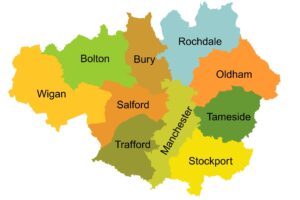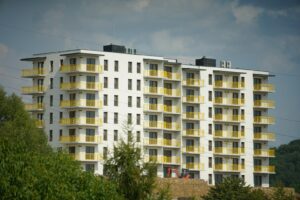Figures released today by think tank Centre for Cities have revealed the North-South divide is widening, with inflation up to 30% higher in Northern cities.
Analysis has shown that the cost of living crisis has worsened inequalities in cities outside of the South due to poor home insulation and a heavy reliance on cars.
Eight out of 10 cities most impacted by the rise in inflation are in the North, Midlands and Wales, with workers here losing approximately £336 more in average monthly income than southerners.
The report revealed drastic differences in inflation rates – Burnley is the worst hit with an annual inflation of 11.5%, 30% higher than the inflation rate in London and Cambridge which stands at 8.8% in each.
Centre for Cities Chief Executive Andrew Carter said: ‘The entire country has been impacted by the cost of living crisis but our research clearly shows some areas are being hit much harder than others. Worryingly, the North, Midlands, and Wales are struggling with higher rates of inflation that are further squeezing finances and leaving their residents hundreds of pounds worse off.
‘These disparities prove that levelling up our cities to tackle spatial inequalities and futureproof the economy is more important than ever.
‘In the short-term it is imperative that those most vulnerable are given the support they need to get through this crisis. Even while Westminster’s political situation is uncertain, ministers must act quickly to protect the areas most impacted and ensure they don’t fall even further behind.’
It’s thought a driving factor in this is the amount of poor quality housing stock outside of the South, with the most energy inefficient homes concentrated in the North.
In Burnley and Blackpool between 75-80% of housing stock has an EPC band below C, compared to less than 60% in London and just 50% in Milton Keynes and Peterborough.
Households are having to spend more on energy costs, with those in Bradford and Blackpool paying roughly £300-£400 more a year than households in Milton Keynes, Crawley or Swindon.
Centre for Cities is recommending the government offer more short-term support, such as increasing benefits in line with inflation, reintroducing the £20 uplift to Universal Credit and providing one-off payments to people living in homes with an EPC rating below C.
In the long-term the think tank said it was vital homes be retrofitted to reduce energy demand and costs, which could be achieved through the reintroduction of the Gren Homes Grant offering £5,000 grants to improve energy efficiency.
The government should also focus on growing the economy in general and commit to levelling up to improve prosperity within these problem areas, particularly in the North.
Photo by Harrison Qi

















Leave a Reply